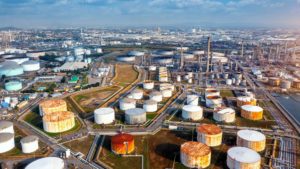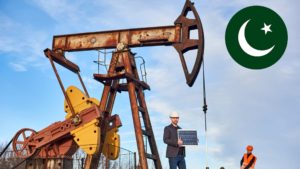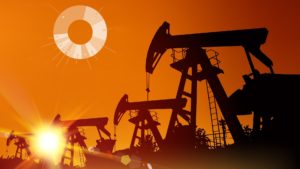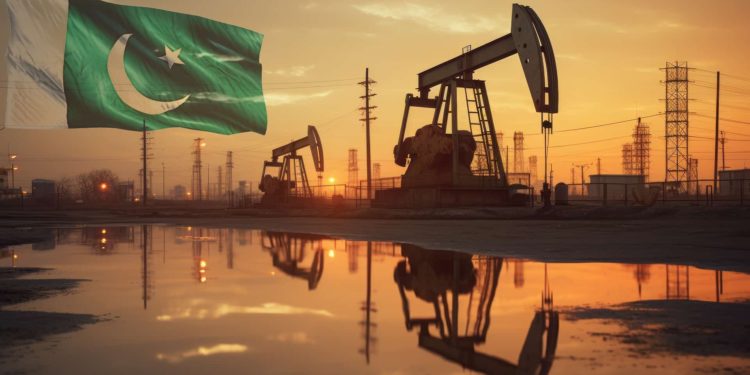Huge Gas and the fourth largest oil reserve in the world are found in Pakistani waters, raising a Sign of Hope for the Economy. The possible finding of substantial oil and gas reserves within Pakistan’s territorial waters might significantly impact the nation’s economy. However, it is too early to say a lot because the detailed analysis would say what it can do to improve the country.
This discovery can bring incredible outcomes for the country but also requires immense time and investment.
The blue water economy term is used here to describe the sustainable use of ocean resources for increased economic activity and better living conditions, and it would be a beyond gas and oil thing.
A top security official believes that this enormous discovery of the oil reserve, which was made following a comprehensive three-year geographic study carried out in cooperation with a friendly country, might potentially usher in a new era for Pakistan’s economy by utilizing its potential in the rapidly developing blue water economy.

This revelation of the fourth-largest oil reserve in the world, which is being foreshowed as a paradigm-shifting discovery, coincides with Pakistan’s severe economic difficulties.
Pakistan is amidst the hardest time for its economy, and many other factors as a nation. The geographic study has the potential to give oil reserve country Pakistan a new source of income and lessen its reliance on energy imports. Discussions regarding exploratory proposals are currently underway, and the relevant government departments have been notified.
Experts warn that because of the complexity and high cost of the drilling and well-digging processes, extraction won’t start for several years. Certainly, a lot needs to be done to make this discovery work best for the country.
Fourth largest oil reserve in the world: The Significance of Discovery

According to the official, Pakistan may be able to join Saudi Arabia, the United States, and Venezuela as the world’s top producers of gas and oil as a result of this finding. Experts are thoughtful about oil reserve discovery; warning the public that complete confirmation and utilization of the reserves is still a lengthy process that would require major investment, even though early estimates suggest these reserves might be among the largest in the world.
The official went on to say that Pakistan might be able to access other important marine resources that are a part of the Blue Sea economy in addition to oil and gas in Pakistani waters, which might open up new economic opportunities for the nation.
An important thing to note is; that these kinds of actions like oil reserve systems are difficult and time-consuming. Years may pass before the true magnitude and profitability of the reserves are established, even with the discovery.
Furthermore, the discovery of the fourth largest oil reserve in the world is a possible energy resource treasure trove and arrives at a crucial time for Pakistan. The nation is battling a serious economic crisis characterized by rising trade deficits, inflation, currency depreciation, and external debt.
The economic crisis has also been made worse by energy shortages, which frequently cause power outages that impact homes and businesses. To achieve its energy demands, Pakistan has long been dependent on expensive imports of oil and LNG (liquefied natural gas). The country’s energy landscape could be stabilized if there would be a substantial domestic supply of gas and oil.

However, there is still a very long journey to take and investment is too high to yield profitable results.
If we talk about what gas and oil reserves could bring to in nation, Potential oil and gas discoveries could be a game-changer, providing a route toward energy independence. Pakistan may save billions of dollars on imports by lowering its reliance on foreign gas and oil, putting the money saved toward social programs and infrastructure. Moreover, this Oil reservoir has potential that could go unrealized for years without the right investment, making the country dependent on imports.
Again, becoming overly optimistic for now would be good. The costs associated with the exploration phase alone might be billions of dollars and additional funds would be needed to construct the infrastructure needed for the extraction and transportation of oil and gas from offshore sites.

Nonetheless. Venezuela presently holds the record for the most oil reserves in the world, with an estimated 3.4 billion barrels.
By contrast, because of sophisticated extraction techniques like hydraulic fracturing (fracking), the United States has the largest undeveloped shale Oil reservoir in the world. Although shale oil is an essential component of the American energy mix, its production feasibility may be impacted by its effects on the environment and volatile oil prices.
Iraq, Saudi Arabia, Iran, and Canada round up the top five nations with the largest oil reserves.
The finding of offshore oil and gas deposits has given Pakistan renewed hope, but there is never a guarantee that the predicted reserves will be as huge or as easily accessible as projected. Significant obstacles arise due to the difficulty of extraction, even in cases where discoveries are validated.













